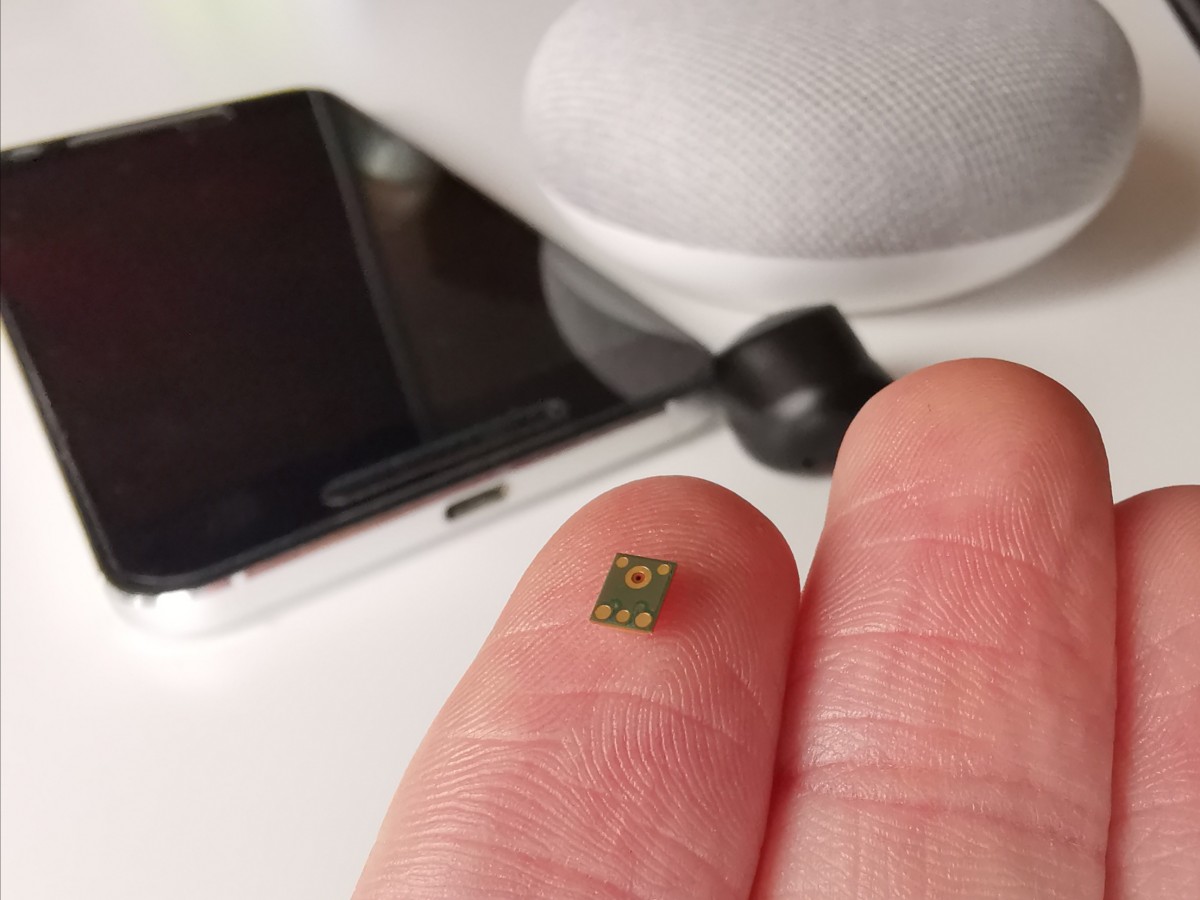Disruptive Scottish start-up company IMERAI has developed a sensor which allows an Artificial Intelligence (A.I.) to understand the physical world around it.
Taking inspiration from the natural world, the technology uses echolocation instead of light to receive images in a similar way to a bat which uses sound to understand its surroundings. The resulting picture appears without identifiable data so that privacy is protected.
Focusing initially on domestic applications, the breakthrough is essential for privacy in the home. However, the sensor’s applications are wide ranging, including facilitating social distancing in office buildings and supporting those with dementia and other assisted living needs.
IMERAI has now attracted sufficient investment to build a full engineering team with the addition of five new roles.
Alex Bowen, a recent Heriot-Watt University graduate, founded IMERAI in 2018. He evolved the technology from his dissertation project into a business with support and guidance from the Edinburgh Business School Incubator, based at the University.
Bowen said: “To train and build an A.I. you need to teach it how to interpret information which is most often described by a human. All A.I.s need to constantly learn and adapt to understand the world like we do. But industry continues to face the challenge of how to teach A.I. about what happens in people’s homes without invading users’ privacy from human oversight or camera use.
“As with many problems, nature had the solution. In the wild, bats send out a screech and they listen for the echoes to understand distances and the location of physical objects. In this way, the bat can interpret its surroundings. Our sensors work in a similar way using echolocation to create a picture without any identifying data so that privacy is protected.
“This has widespread applications. As the UK debates how to ease lockdown measures safely, this type of technology could be used to count how many people are present in an office location and how far apart they are to aid with social distancing and infection control. For assisted living, this could be game-changing for dementia sufferers and others with assisted living needs, allowing their movements to be monitored and any deterioration to be picked up more quickly.”
Utilising MEMS microphones, which are already widely used in mobile phones and smart home assistants, IMERAI’s technology will provide the foundations for more sophisticated A.I. products to be built with more seamless functionality.
Bowen explains: “The virtual A.I. assistants already on the market are manually triggered by voice but our technology will allow the A.I. to be more intuitive by understanding how its user is moving around. For example, if you are following a recipe and the virtual assistant is reading out the instructions, it will be able to ‘see’ when you are ready for the next ingredient rather than waiting to be prompted for the next instruction.”
IMERAI was founded in 2018 and is based in the Edinburgh Business School Incubator at Heriot-Watt University.
Bowen continues: “The early days of setting up a business are intimidating and it’s an incredibly emotional journey. The incubator had a stabilising effect on the business. It provides a non-competitive environment with seminars, advice and information which educates while separating home from work. Everyone in the Incubator is building a business from scratch so it allows you to bounce ideas around and learn from each other. Exploring entrepreneurship can be very taxing and support is essential to success.”
Kallum Russell, Business Incubator Manager at the Edinburgh Business School, said: “Edinburgh is renowned for its semiconductor technology and robotics expertise so the city provides the ideal environment from which Alex can effectively scale his business.
“The Enterprise Team has been supporting Alex since he was an undergraduate with start-up advice, contacts, application submissions and training to help attract investment. Last year, he successfully secured funding through Heriot-Watt’s Santander Universities Programme which is available to support selected entrepreneurs to develop their business.
“We work with companies like IMERAI at a variety of stages in their development from proof of concept through to early trading. The types of businesses and the specialities of our entrepreneurs are wide-ranging. At present, we are home to companies as diverse as food waste recovery, geothermal energy, Marketing and Vietnamese cuisine. As well as offering free office space, we are always on hand to provide mentoring and advice to our entrepreneurs and to provide access to business training, networking opportunities and speaker events.
“IMERAI is one of 22 companies currently located at the Incubator. We are supporting these businesses through the impact of lockdown with remote support and virtual seminars.”
The Incubator is also home to INFINECT, a University spin-out company. INFINECT announced earlier this year that it had created a flat panel antenna that could end the connectivity problems customers currently face when travelling on trains and planes.




